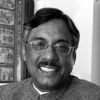The Mahabharata (circa 3rd century BCE) is the biggest epic and the longest poem in the world. It totals at 1.8 million words, making it about ten times the size of the Iliad and Odyssey combined.
The Bhagwad Gita is, of course, the crowning jewel of the epic. But in my view, one of its most brilliant sections is the Yaksha Prashna. This remarkable episode has a dramatic setting. The five Pandava brothers —Yudhishthira, Bheem, Arjuna, Sahdev and Nakul — along with their wife, Draupadi are in exile in the Dvaitavana forest, after Yudhishthira lost his kingdom and his wife to the Kauravas in a game of dice.
Once, when they were thirsty, Yudhishthira asked Nakul, the youngest, to find water. Nakul set out and found a crystal-clear lake. As he was about to drink, a voice from the sky said: "O, child, this lake is in my possession. You must answer my questions and only then drink of its waters." But Nakul disregarded the warning and immediately dropped down dead. When he did not return, Sahdev, Arjuna and Bheem went one by one to look for him. Each found the lake and heard the same voice of warning. But all of them ignored it and died.
Only Yudhishthira now remained. Leaving Draupadi, he too reached the lake and found his brothers lying dead. Overwhelmed with grief, as he sought to quench his thirst, the same ethereal voice warned him not to do so until he first answered the questions. Unlike his brothers, Yudhishthira paused. Incredulously, he asked: "Who are you?". The Yaksha then appeared, gigantic like a mountain, a being neither man nor beast, swaying from side to side. Throughout the night, the Yaksha asked him questions, on birth and death, joy and pain, failure, love and fulfilment, purpose and motive, myth and reality, and the bewildering mosaic that constitutes the phenomenon of living.
When I first read the Yaksha Prashna, I was taken aback by the sheer philosophical profundity of the questions and Yudhishthira’s answers. And I translated this remarkable dialogue into English for my book, Yudhishthir and Draupadi. Here are a few examples to give a glimpse of the brilliance and depth of thought of this exchange:
Yaksha: What is more fleeting than the wind, and more numerous than grass?
Yudhishthira: The mind, O Yaksha, is more fleeting than the wind. Thoughts are like grass, fecund, undetermined.
Yaksha: Who is the best friend of one whom death has just beckoned?
Yudhishthira: A prayer beyond want, reaching the open sky. Charity is the best friend of one about to die.
Yaksha: What is the most valuable thing we possess, and the best kind of happiness?
Yudhishthira: Raindrops at rest after a storm is spent. The best kind of happiness is to be content.
Yaksha: Tell me now, what among duties is the highest one?
Yudhishthira: Sinner that I am, I won’t perjure. A person’s highest duty is not to injure.
Yaksha: What is pride?
Yudhishthira: Pride, O Yaksha, is to be an unknowing victim of error. To delude oneself that in life one is the sole actor and sufferer.
Yaksha: O, Kunti’s progeny, tell me who is truly happy?
Yudhishthira: That man is happy who does not stir from home, cooks his own meals, isn’t in debt, and is happy to be alone.
Yaksha: Tell me, wise one, what in this world is most wonderful?
Yudhishthira: Millions pass on yet the living think they won’t die. What can be more wonderful than this strange lie?
The sun was breaking on the horizon by the time the questions ended. The Yaksha, pleased by Yudhishthira’s answers, said: “O, king, I give you a boon. Choose one amongst your brothers and let him arise with life.”
Without the slightest hesitation, Yudhishthira chose Nakul. The Yaksha was amazed that he had chosen his stepbrother, over his own siblings, Arjuna and Bheem, and asked him for the reason for his choice. It was Yudhishthira’s finest hour when he replied: "My father had two wives, Kunti and Madri. As Kunti is to me, so also was Madri. There is no difference between them in my eyes. I desire to act equally towards my mothers. Let a child of both live. I, therefore, ask for Nakul to get up with life."
Hearing this the Yaksha said: "Yudhishthira you have shown yourself to be above both profit and pleasure. Therefore, let all your brothers live." One by one the brothers arose as if they had just been in deep slumber. Seeing this spectacle, Yudhishthira asked again: "Who are you?" And the Yaksha replied: "I am your father, Dharma, the Lord of Justice. I came to test your merit. Your self-restraint, impartiality, intellectual insight and freedom from malice have pleased me well".
The Mahabharata is full of incidents and episodes that embellish the main narrative of the Great War between the Pandavas and Kauravas. The Yaksha Prashna is one such episode. But it provides a window to the greatness of the epic, and the moulik soch or original thought that inspired it.
Pavan K Varma is author, diplomat, and former Member of Parliament (Rajya Sabha). Just Like That is a weekly column where Varma shares nuggets from the world of history, culture, literature, and personal reminiscences with HT Premium readers. The views expressed are personal





















 Toi Staff
Toi Staff Gideon Levy
Gideon Levy Belen Fernandez
Belen Fernandez Andrew Mitrovica
Andrew Mitrovica Mort Laitner
Mort Laitner Rami G Khouri
Rami G Khouri Ali Fathollah-Nejad
Ali Fathollah-Nejad Nikkei Editorial
Nikkei Editorial
